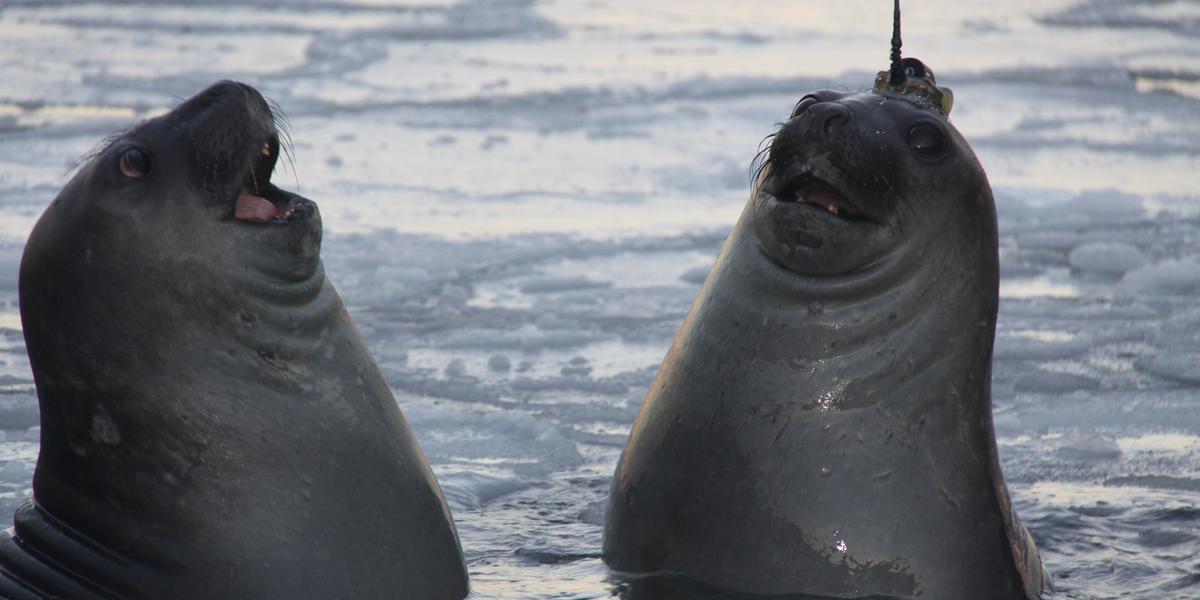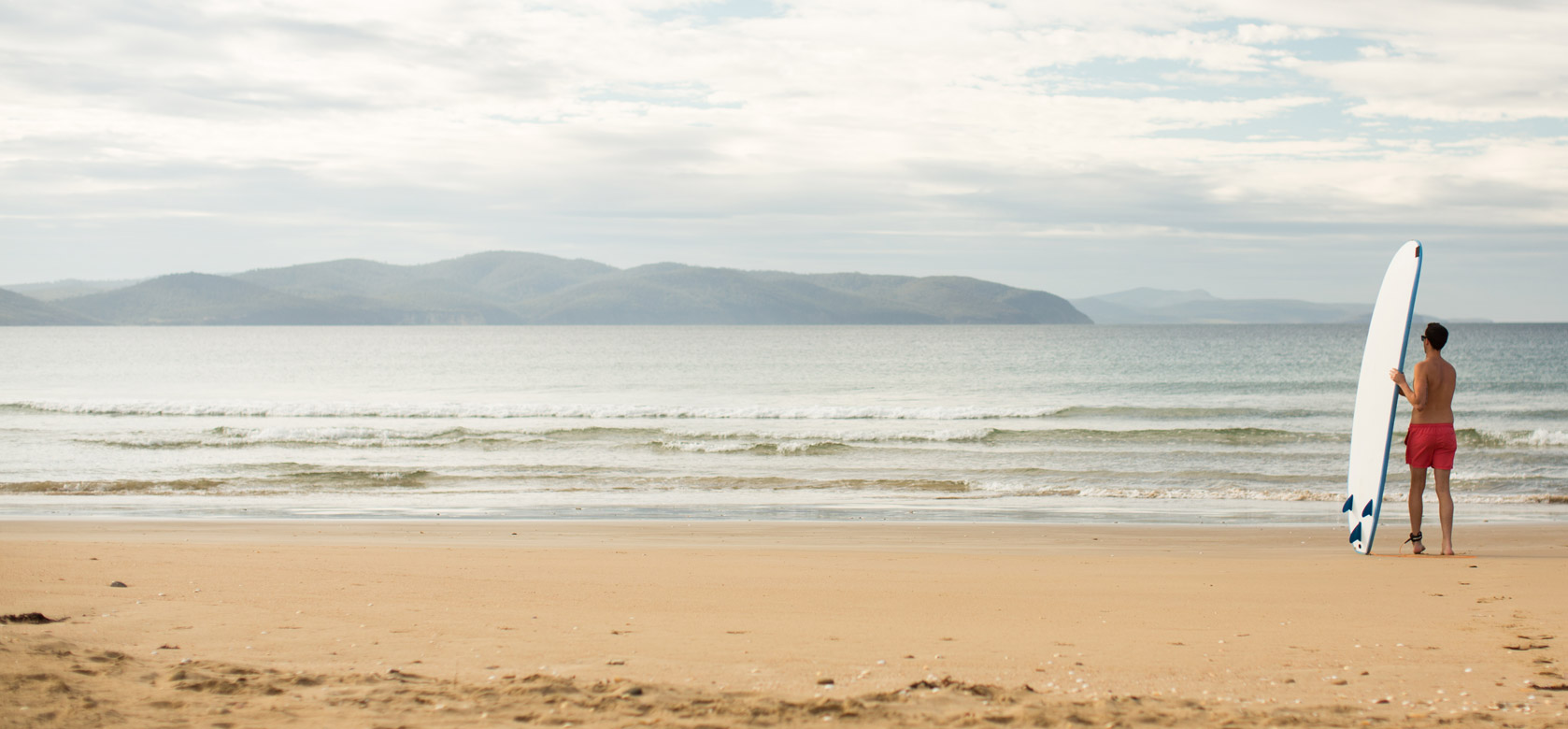Research themes

Environment, Resources and Sustainability
Tasmania is an island laboratory of global significance, home to contrasting ecosystems that share a common evolutionary history and an outstanding natural heritage.
As a state, we have the longest history of environmental awareness and research in Australia, providing a rich store of knowledge on the island's evolutionary and geological history and its current ecological communities.
The island's unusual diversity and range of primary production systems in agriculture, fisheries and mining lie within a largely a contained system, ideal for innovative, whole-of-systems research. Tasmania is also the national gateway to the Southern Oceans and Antarctica.
University of Tasmania researchers maximise their proximity to these unique environments to confront some of the most challenging questions of our time and pave the way to a sustainable future.
Research outcomes include the development of new ways to improve food production in hot, sandy soils; alternative approaches to forest management; charting the location of rich reserves of metal underground; and tracking disease in endangered species.

Creativity, Culture and Society
University of Tasmania researchers are at the forefront of developing and refining creative ideas to improve social policy and community wellbeing. In identifying solutions to today's complex challenges, we recognise the importance of resilience.
Resilience is an adaptive capacity, the ability to function and thrive despite adversity. Resilience also provides a powerful lens through which to understand the economic, social and cultural dynamics that shape our behaviour in times of change.
University of Tasmania researchers work to build resilience within individuals, communities and nations by identifying ways for communities to adapt to change – spanning from societal changes to responses to natural disasters.
Engaging in the visual and performing arts, our researchers examine how creativity can promote vibrant communities and enhance Tasmania's already strong cultural capital with global ramifications.
Research outcomes include the development of attractive low-cost housing for those who have none; analysis of policies that make the community safer; law and tax reform, prison and museum management, and marine biodiversity. New projects are melding art and science to engage people in environmental remediation.

Better Health
We face a crisis in health care across the world. An ageing population and growing incidence of preventable chronic disease threatens to overwhelm our communities and health care systems.
Researchers at the University of Tasmania are taking a new approach to health, which is predictive, preventative and participatory. We aspire to meet the healthcare needs of an ageing population with multiple chronic conditions, reduce the growing burden of preventable chronic disease, deliver convenient and affordable health services and improve consumer engagement in health care.
Tasmania is at the forefront in facing the challenges of an ageing population in an environment of relative socio-demographic disadvantage, making it an ideal location for developing and evaluating health innovations. As the state's only university, we also benefit from close links with the community, health system and health professionals.

Marine, Antarctic and Maritime
Sitting at the edge of the vast Southern Ocean, and separated from the Australian mainland by a treacherous Strait, Tasmania is an ideal laboratory in which to advance understanding of temperate marine, Southern Ocean and Antarctic environments.
Tasmania's only university enjoys all the advantages its location has to offer: tremendous international collaborations, world-class expertise and the broadest range of marine, Antarctic and maritime research programs in the country.
Following a long tradition in marine and Antarctic exploration and discovery, researchers at the University of Tasmania continue to lead the world in Antarctic and Southern Ocean science and governance. Our researchers also help to drive marine technology capability and support sustainable marine industries.
Research outcomes include identifying solutions for bluefin tuna disease; optimising design of high-speed ferries; improving the health and yield of marine food sources such as salmon and lobster; and developing sea ice charting services for polar mariners in East Antarctica.

Data, Knowledge and Decisions
The extraction and interpretation of information from vast quantities of data is now a fundamental part of advanced inquiry, transforming research in areas as diverse as particle physics through to digital humanities, environmental monitoring, health and finance.
Researchers at the University of Tasmania are collecting and analysing huge data sets to build new models to improve community, environmental and economic outcomes, providing a better foundation for policy and business practice. These new approaches are significant not only for Tasmania, but across international jurisdictions.
Drawing on our strengths in fundamental sciences and information technology, the University has formed close collaborations with a wide range of disciplines across the University, as well as government and industry partners.
We aspire to establish Tasmania as a reference source of globally unique, high-quality, longitudinal, integrated data sets covering our social, economic, environmental and health systems.
Research outcomes include: Establishing Sense-T, a world-first, economy-wide sensor network and data resource that creates a digital view of Tasmania; improving maths education in the classroom and the investigation of data relating to descendants of colonial penal systems to provide longitudinal insights into health.